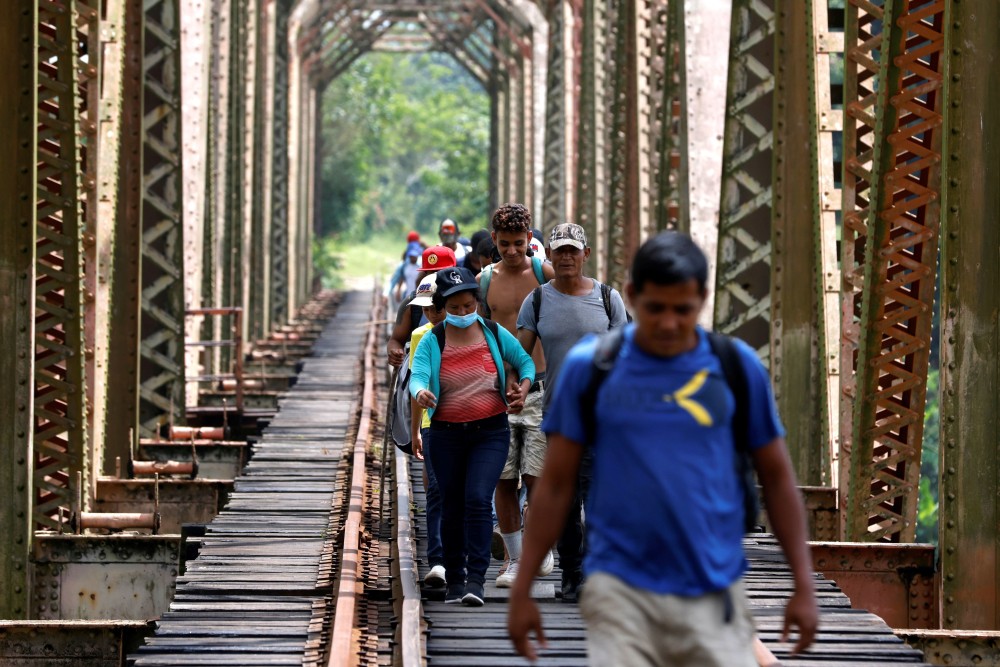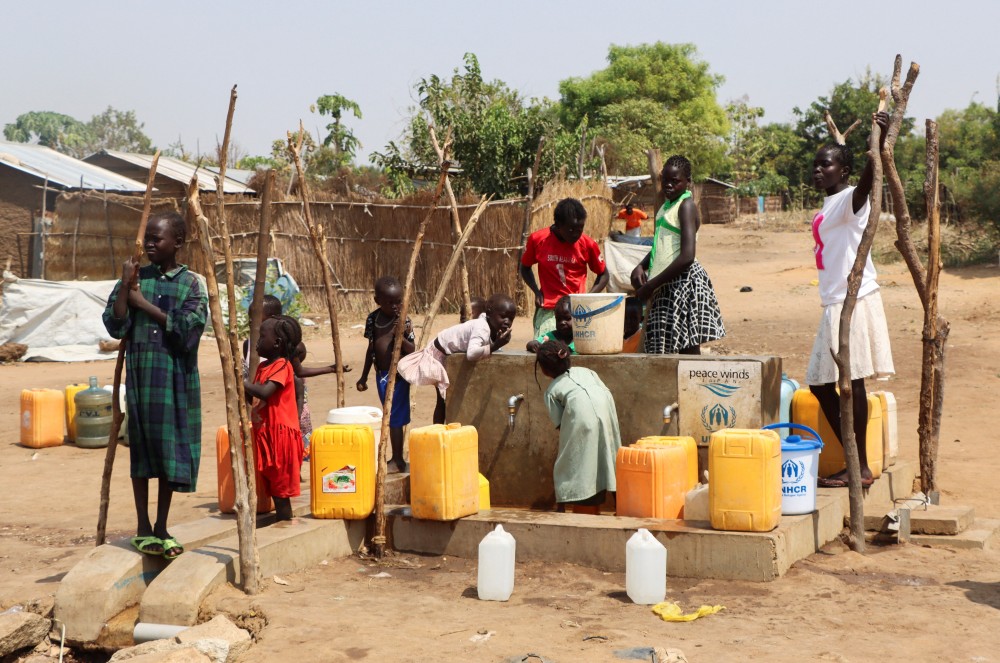
WASHINGTON — According to the United Nations, every minute at least 20 people around the world leave everything behind to escape war, persecution or terror, and a growing number of people each year are also displaced by climate change, disasters, population growth and economic inequality.
The plight and the resilience of refugees is highlighted annually in World Refugee Day, celebrated June 20.
The international observance, established by the United Nations, first took place in 2001 to mark the anniversary of the 1951 Convention Relating to the Status of Refugees — a response to the needs of refugees displaced by World War II.
And the crisis is by no means decreasing. The UN reports that in 2023 there were 36.4 million refugees worldwide and more than 30,000 people are being displaced every day. Children make up more than 40% of this refugee population. Most current refugees are from Syria, Afghanistan, Venezuela and Ukraine.
Hunger and climate change are some of the biggest challenges facing refugees today. According to the UN Refugee Agency, 67% of refugees and asylum seekers are from countries with food crises and the World Bank predicts that effects of climate change — droughts, flooding, and rising sea levels — could displace more than 200 million people by 2050.
On this year’s World Refugee Day, Jesuit Refugee Service, Caritas Internationals and others issued a message called “One Shared Humanity” to encourage people to be more empathetic to refugees amid current conflicts and humanitarian crises.
The message expressed concern about the “growing politics of fear, which dehumanizes refugees and sees in them a burden and a threat.”
It noted that refugees “often carry the impacts of this violence with them, frozen in their hearts and minds, and sadly they often face even more violence in the places where they hope to find safety.”

A statement by the U.S. Conference of Catholic Bishops for World Refugee Day similarly said that this annual day “serves as a poignant reminder of the millions of individuals and families forcibly displaced from their homes.”
It noted that its Department of Migration and Refugee Services is one of 10 national resettlement agencies partnering with the federal government to help refugees and it is “one of the ways in which the Catholic community in the United States answers Christ’s call to welcome the stranger.”
Catholic Relief Services, the international humanitarian relief agency of the U.S. bishops, highlights on its website the areas around the world where it is helping refugees and urges Catholics to respond to the crisis by praying for refugees and donating to the work of CRS.
It stressed the need to advocate with members of Congress to sponsor bills supporting refugees and addressing root causes leading to people’s forced displacement.
The site also quotes Pope Francis who spoke not only of the global crisis of refugees but how people need to consider the human dignity of each person seeking asylum.
In a 2016 visit to the U.S.-Mexico border he said the “human tragedy of forced migration is a global phenomenon. It is a crisis that can be measured in numbers but should be measured with names, stories, and families.”
